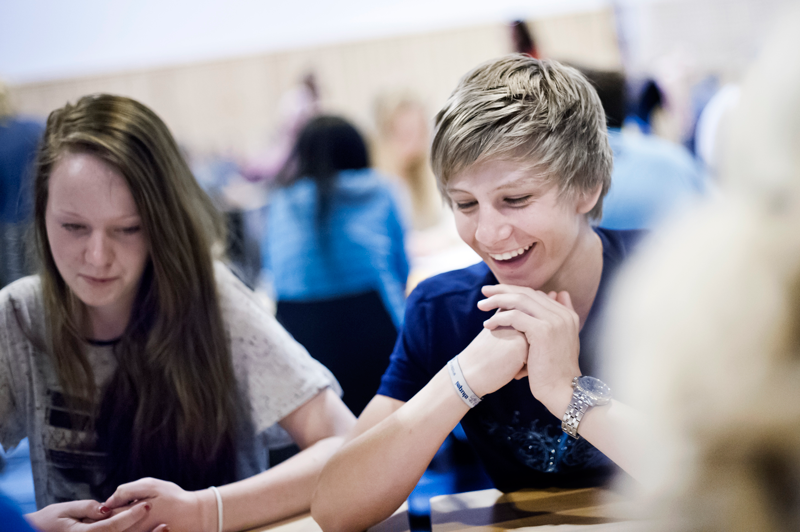14th October last year, headlines in Norway featured collapsing oil prices, falling by almost four dollars to 81.84 dollars. A year later prices are below 50 dollars a barrel. 20 000 jobs are gone. Half of all employees in Norway’s most important industry worry about their jobs.
(Innlegg av Vibecke Lykke Olsen i Ungt Entreprenørskap Rogaland. Foto: Aibel/Studio Alsvik)
The agenda is set for working out what will be our “new oil” when the time comes.
We may not know which industries we’ll live off in in the future, but we do know who will be doing the work.
Look to those who park their bikes outside their local school every morning.
This new generation will soon take on known and unknown challenges. They will be responsible for a growing population of elderly. They will be tackling major environmental issues. They will have to compete in a global market where change is the new normal.
Predictions are that 40% of companies will be dead in 10 years.
In view of this, are we confident about letting our young pass through school, never learning about the possibility of promoting their own ideas and creating jobs?
Skills for the future include the ability for lateral thinking, initiative, creative problem solving, risk handling, collaboration, networking, communication skills and social skills. Add practice and confidence building to enable future workers taking on game-changing tasks.
Sense of initiative and entrepreneurship is one of eight key competences in EU schools.
The Norwegian curriculum does not include much entrepreneurship nor innovation. Furthermore, the norm for career counselling is to guide students on choosing established organisations and apply for work.
Fortunately, there are teachers who value entrepreneurship and incorporate it into their classes, collaborating with local businesses and organisations.
Each year 12 000 students in Norway learn and develop through running their own Student Company. The non-profit organisation Ungt Entreprenørskap (Junior Achievement) assists schools and universities with this work.
Research confirms the output to be a higher degree of robust entrepreneurial activity later in life amongst the students involved.
This correlates with OECD’s findings that a crucial boost to job creation is giving young firms a better chance to succeed.
Besides, entrepreneurial skills are not only valuable to startups, these skills are just as necessary to keep developing existing businesses and organisations.
Education, public services and businesses need to pull together to provide the next generations with creativity and entrepreneurial skills. This will not only benefit the youngsters entering working life over the coming years.
People who know how to create value socially, culturally and financially will be a key part of the recipe for Norway’s future welfare.


Vibecke Lykke Olsen is General Manager of Ungt Entreprenørskap Rogaland.
Ungt Entreprenørskap is part of JA Europe, Europe’s largest provider of education programmes for entrepreneurship, work readiness and financial literacy.









